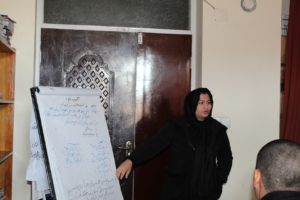
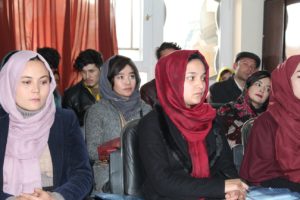
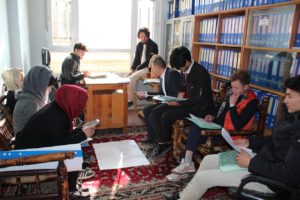
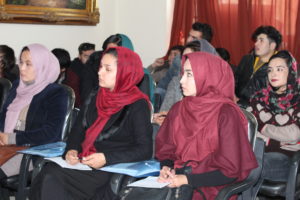
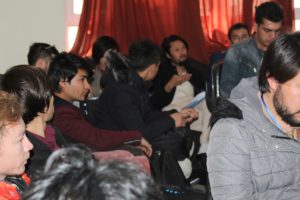
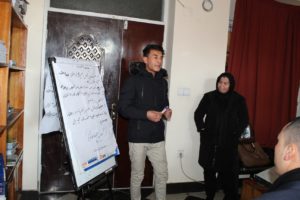
A three-day educational workshop on “sexual and gender-based violence and crimes in war and after war”, was organised by Armanshahr Foundation, in collaboration with Afghanistan Development and Democracy Organisation and Afghanistan Women’s News Agency, from 8-10 December 2018. Thirty people, including representatives of civil society organisations, human rights activists and women’s rights, and students, participated in the workshop.

The first day of the workshop was concerned with discussion of sexual and gender-based violence in various forms of it, and implementation of justice in post-war and transitional societies. This included the definition of sex as physiology of men and women, and of gender, i.e. people’s view of men and women socially and culturally. Everything that harms an individual psychologically and physically is violence. Sexual, emotional, physical, physiological, social, economic, and domestic violence are notable types of violence.
On the 2nd day, the participants were divided into three groups, in which they discussed and examined the effects and consequences of armed conflicts on men and women, the status of Resolution 1325 in Afghanistan, and the status of victims in the peace process. Subsequently, sexual violence in the United Nations Security Council resolutions, including Resolutions 1325, 1820 and 2106 was examined.
On the 3rd day, the participants were also divided into three groups and discussed three questions: what plans does Afghanistan have for Resolution 1325? How has the Rome statute dealt with sexual violence? What is the message of the international humanitarian law regarding sexual violence? They then reported the outcome of their discussions in the plenary session and exchanged views. Subsequently, extensive discussions took place about the International Criminal Court (ICC). Questions that came up in this discussion included: what kind of a court is the ICC? What jurisdiction does it have? How does it investigate cases concerning sexual and gender-based violence? How can cases be filed with the ICC?
In a subsequent opinion poll, participants of the workshop said that they were happy to learn about fundamental and useful human rights topics and international instruments concerning sexual and gender-based violence.
Ali Mohebbi, one of the participants and a graduate of politics and drama, said: we can have dialogues over crucial issues such as sexual violence and then develop it to a discourse. Such topics can be adapted to people’s language, with the help of political science and drama, on the basis of which advocacy can be undertaken. He said that he would ask other institutions to look at Armanshahr Foundation as a role model and to help the society achieve justice through advocacy and civic education.
Endorsing those, Zahra Nikzad, another participant, commented on the effectiveness of the workshop, saying that she had acquired a higher capacity for advocacy and civic activities and asked Armanshahr Foundation to carry on with organising similar programmes.
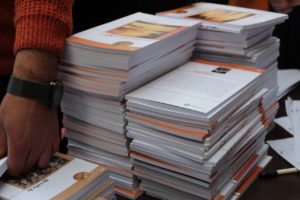 During the workshop, participants received an educational package including numerous articles on women, war, violence, transitional justice, International Criminal Court, reports to the ICC about victims of sexual violence and crimes, and texts of Resolutions 1325, 1820 and 2106.
During the workshop, participants received an educational package including numerous articles on women, war, violence, transitional justice, International Criminal Court, reports to the ICC about victims of sexual violence and crimes, and texts of Resolutions 1325, 1820 and 2106.
Since 2013, Armanshahr Foundation has been organising the “Human Rights Week” at the beginning of December, marking the International Human Rights Day, by holding educational workshops, public conferences, cultural and artistic events, and distributing the published book with the aim of raising the capacity of civil society institutions and promoting the culture of respect for human rights.

